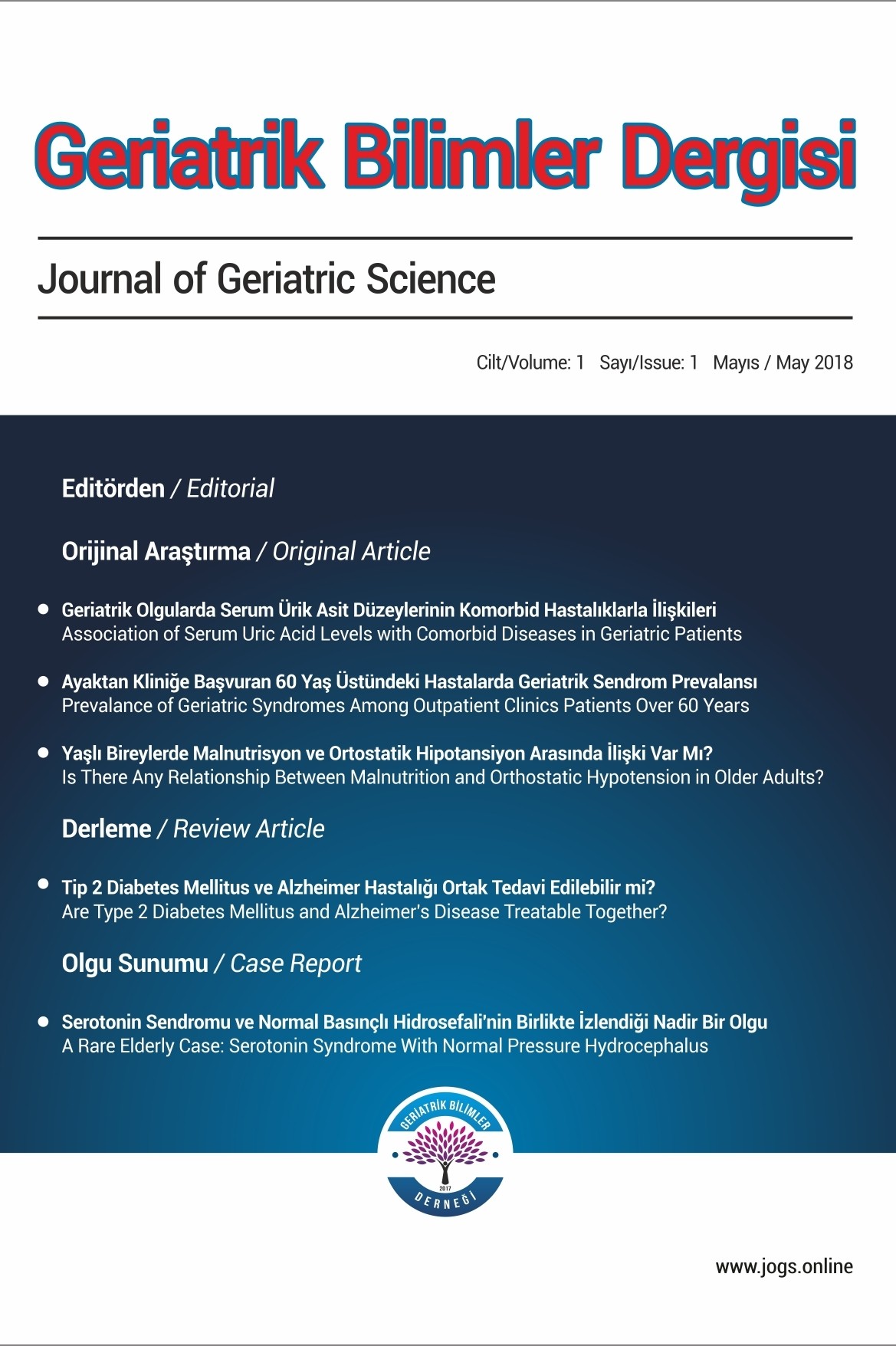
Geriatrik Bilimler Dergisi
Yazarlar: Şenay ÖZTÜRK, Yalçin KANBAY, Meryem FIRAT, Aysun AKÇAM, Burcu DEMİR GÖKMEN
Konular:Tıp
DOI:10.47141/geriatrik.697257
Anahtar Kelimeler:Old age,Belief about old age,Older adult
Özet: Aim: The purpose of this study is to examine the factors affecting the belief about senility. Material and Methods: This descriptive study was carried out in Artvin, Ağrı, and Erzincan in 2018. The sample of the study consists of 1180 individuals. The "Personal information form" and "Lomaşen senility belief scale" were used as data collection tools. Results: According to the findings of this study, the average score of the Lomaşen Senility Belief Scale (LSBS) is 76.6 ± 0.500. The women’s average score of the LSBS is similar to that of men (p>0.05). Single people have more positive old age beliefs than those who are married, who have extended family and other family types than who have nuclear families, who live in towns and cities than who live in villages (p<0.05). In addition, those who do not live with the elderly, who do not want to live with an elderly person, and who has visited a nursing home have more positive old age beliefs than those who have not (p<0.05). In addition, belief in old age increases negatively as age increases; while economic status, educational status, maternal education level, and father's education level increase, belief in old age increases positively. Belief in old age does not differ according to gender and the status of having lived with the elderly before (p>0.05). Conclusions: The scores obtained according to the results of this study show a low level of negative beliefs about old age. However, being in a relationship with the elderly positively affects beliefs about old age. As individuals get older, their beliefs about old age are negatively affected. Increasing education level, spending time with the elderly, having a good socio-economic status is meaningful in terms of the increase in the importance given to the elderly.